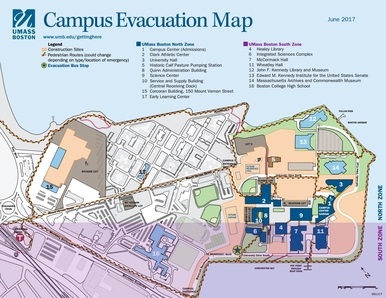- Home
- Preparedness
Be Informed. Be Prepared. Stay Safe.
Emergencies can happen anytime — whether it’s a medical crisis, severe weather, fire, or an on-campus threat. This page is your starting point to understand how to respond quickly and effectively.
We’ve compiled essential safety procedures, emergency protocols, and preparedness resources to help you stay informed and take action when it matters most.
You can also download our "What to Do in an Emergency" booklet for a printable, quick-reference guide.
Mission Statement
The mission of Emergency Management at UMass Boston is to prepare the campus through use of enterprise risk management and emergency planning efforts to ensure that risks and hazards are mitigated, preparedness efforts undertaken, and plans are in place such that emergencies are responded to effectively, minimizing the loss of life and property damage; and to ensure that business continuity and system recovery plans are in place, ensuring return of systems and business activities following a disruption. The Office of Emergency Management provides oversight, coordination and leadership for the promotion of Emergency Management, Business Continuity activities that reduce or eliminate risk to people, property, the environment, and university reputation from incidents or events and their effects.
Emergency Operations Plan
The campus Emergency Operations Plan is an all-hazards response plan that follows the National Incident Management System/Incident Command System (ICS) approach to emergency management. This system provides a consistent, nationwide template to enable public and private-sector organizations to work together effectively and efficiently to prepare for, prevent, respond to, and recover from domestic incidents, regardless of cause, size, or complexity. Incident Command is established by the senior responder from the appropriate response area.
This plan proposes five emergency levels. For small-scale level one emergencies, the incident is resolved at the department level and appropriate notifications are sent out. For larger emergencies, the Incident Commander, as part of his/her notification to leadership, signals the need for expanded university response. Under ICS, the Incident Commander is directly in charge of incident stabilization. University Leadership (i.e. Cabinet) is responsible for policy decisions, and bears responsibility for the overall resolution of the incident. The Cabinet is in regular contact with Incident Command, and works with the Public Information Officer (Communications) and Liaison (Government Relations) to ensure that appropriate communications are maintained. The Incident Command System allows the campus response to be organized into sections focused on separate but related activities, all reporting up to the Incident Commander, who in turn, works with the Cabinet to stabilize the situation and ensure continuity of operations.
Departmental Preparedness Checklist
This Checklist for Departments outlines steps that faculty and staff members can take to ensure that their department is able to respond to emergency situations in a quick and efficient manner.


